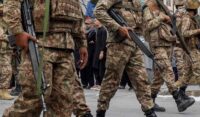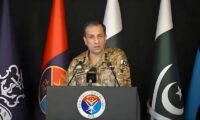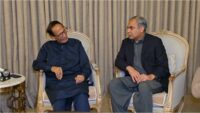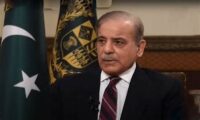A U.N. Security Council committee agreed to allow the Afghan interim administration’s foreign minister Amir Khan Muttaqi to travel to Pakistan from Afghanistan next week to meet with the foreign ministers of Pakistan and China, diplomats said.
Muttaqi has long been subjected to a travel ban, asset freeze and arms embargo under Security Council sanctions.
According to a letter to the 15-member Security Council Taliban sanctions committee, Pakistan’s U.N. mission requested an exemption for Muttaqi was to travel between May 6-9 “for a meeting with the foreign ministers of Pakistan and China.”
Chinese and Pakistani officials have both said in the past that they would welcome Islamic Emirate-led Afghanistan into the multibillion-dollar China-Pakistan Economic Corridor (CPEC) infrastructure project, part of the Belt and Road Initiative.
The foreign ministry of the Islamic Emirate said that acting minister Amir Khan Muttaqi will lead a political and business delegation to Pakistan at the end of this week.
The deputy spokesperson for the foreign ministry, Zia Ahmad Takal, said that Muttaqi will hold talks with some Pakistani officials in Islamabad about political relations, trade, regional stability, and transit.
“The Afghan government wants to hold comprehensive discussions on regional stability, bilateral political-commercial ties, and transit between Afghanistan and Pakistan. In addition, the foreign minister will take part in the sixth trilateral meeting of the foreign ministers of Pakistan, Afghanistan, and China. The foreign ministers of Afghanistan and China will also hold bilateral talks during this meeting,” Takal said.
“The meaning of the blacklist is that they go to nations with permission and return with permission,” said Sayed Akbar Agha, a political analyst.
Some political experts think that allowing acting minister Amir Khan Muttaqi to visit Pakistan is a sign of positive relations and interaction between the international community and Afghanistan.
“The UN permitted Amir Khan Muttaqi to travel, and during the trip he will meet with the foreign ministers of Pakistan and China, showing the continuation of interaction and good relations between the international community and Afghanistan,” said Najib Rahman Shamal, a political analyst.
Afghanistan sits as a key geographical trade and transit route between South and Central Asia and has billions of dollars of untapped mineral resources. The Islamic Emirate seized power in August 2021 as U.S.-led forces withdrew after 20 years of war.
The Security Council committee allowed Muttaqi to travel to Uzbekistan last month for a meeting of the foreign ministers of neighboring countries of Afghanistan to discuss urgent peace, security, and stability matters.
U.N. Secretary-General Antonio Guterres began a two day meeting on Monday in Doha with special envoys on Afghanistan from various countries that aims “to achieve a common understanding within the international community on how to engage with the Taliban,” U.N. spokesman Stephane Dujarric said.
Dujarric said the closed-door meeting would discuss key issues key issues, such as human rights – in particular women’s and girls’ rights – inclusive governance, countering terrorism and drug trafficking.
Taking part are China, France, Germany, India, Indonesia, Iran, Japan, Kazakhstan, Kyrgyzstan, Norway, Pakistan, Qatar, Russia, Saudi Arabia, Tajikistan, Turkey, Turkmenistan, United Arab Emirates, Britain, the United States, Uzbekistan, the European Union and the Organisation of Islamic Cooperation.
The Taliban administration was not invited to the Doha meeting.






